XO INVESTMENTS’ services for private clients range from wealth management to pensions advice.
The start of the war in Ukraine marks a major geopolitical turning point. Since 2022, the BRICS countries have been stepping up the pace of multilateralism. The world as it was conceived at the end of the Second World War is changing. The so-called emerging countries and those not aligned with the West are stepping up their cooperation, considering the creation of a common currency, increasing their gold reserves, reducing the use of the US dollar in their trade, seeking autonomy in raw materials, and so on.
Symbolising the change in the world, the peace talks are taking place not in Switzerland but in Saudi Arabia. While Switzerland had regularly been an obvious choice for international diplomacy (headquarters of the UN, the 1954 Geneva agreements on the Indochina war, the 1985 Geneva Conference between Presidents Reagan and Gorbachev and many others), the resumption of the European Union’s sanctions packages against Russia leaves the door open to other countries. In addition to its neutrality and good offices, Switzerland has always emphasised its multilingualism, which is essential for diplomacy. Today, however, this is not enough in a new world where China, the Arab world and Russia are striving to make their presence felt economically, politically, culturally and diplomatically.
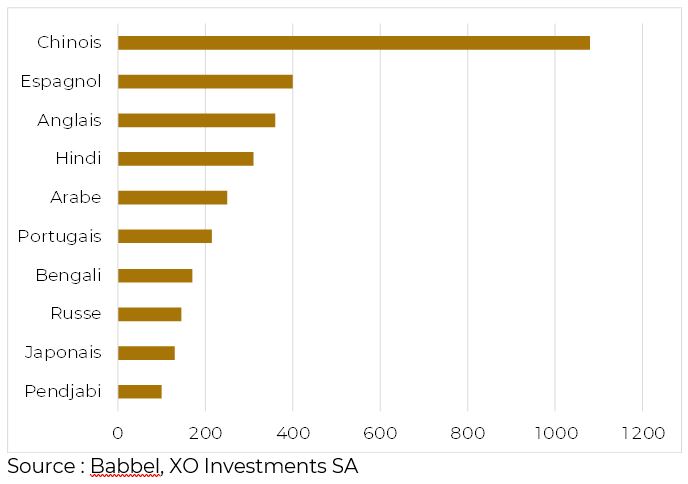
French and English are the two working languages of the UN, which has defined 6 official languages: English, French, Spanish, Chinese, Russian and Arabic (from 1973). This choice represents not only the victors of the Second World War but also the major languages used in the world.
While Chinese is the first language spoken as a mother tongue, English is the most widely spoken language in the world, with almost 1.5 billion speakers. Hindi is the 3rd most widely spoken language in the world, but its many variants complicate its international recognition.
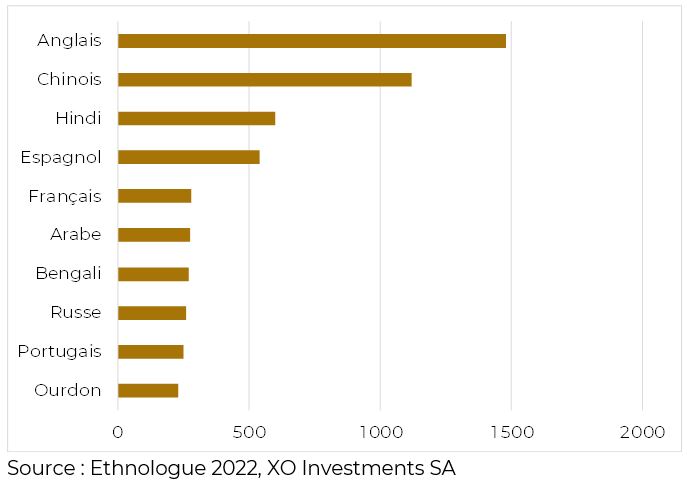
French is still widely used in a large number of countries. The Congo is the leading French-speaking country outside France in terms of speakers, with 50 million people accounting for 50% of its population.
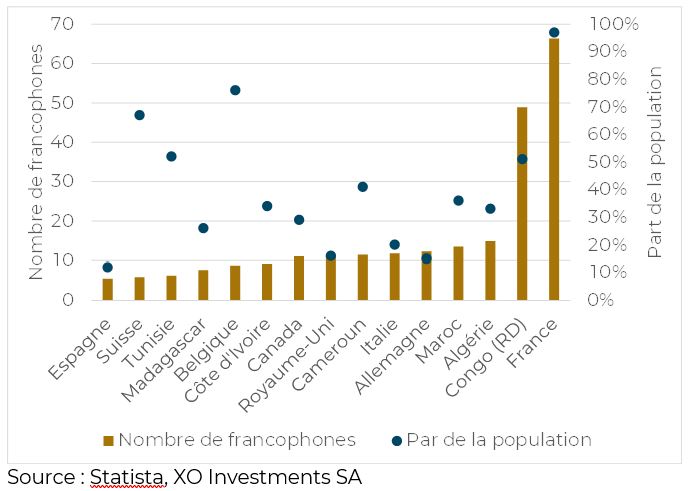
6 languages for the UN in a multiple universe. The diversity of peoples has created a wide variety of languages in the world. There are almost 7,000 of them, some of which are spoken only, particularly in Africa. The world’s languages include :
• 50% are threatened with extinction;
• 96% of them are spoken by 4% of the world’s population;
• 90% are not represented on the internet;
Papua New Guinea has the most languages, with almost 800, or 80 languages per million inhabitants. Indonesia, Nigeria and India are also very rich in languages.
Today, bond investments are attractive because they pay a higher rate of return than inflation.
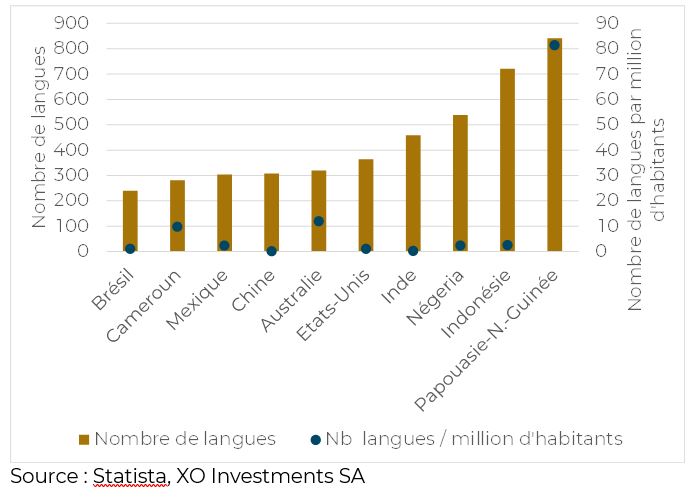
National governments concentrate their activities and communications in a smaller number of official languages. While 130 countries have just one official language, some, like Bolivia, have as many as 37!
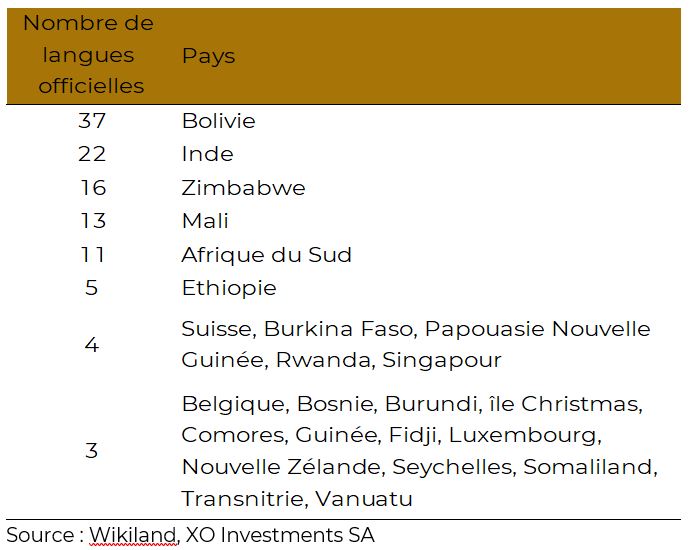
Switzerland, Belgium, Luxembourg, Singapore and New Zealand are the richest countries in both economic and linguistic terms.
Language learning varies greatly from one country to another. The countries of northern Europe are the ones where the population learns the most foreign languages, allowing these nations to be at the center of many exchanges. 95% of the Swedish population speaks at least one foreign language, and 75% speak at least two. These statistics are a far cry from those of the United Kingdom or the United States, where the multilingual population is just 20%. The economic weight of English inevitably leads English speakers not to learn another language.
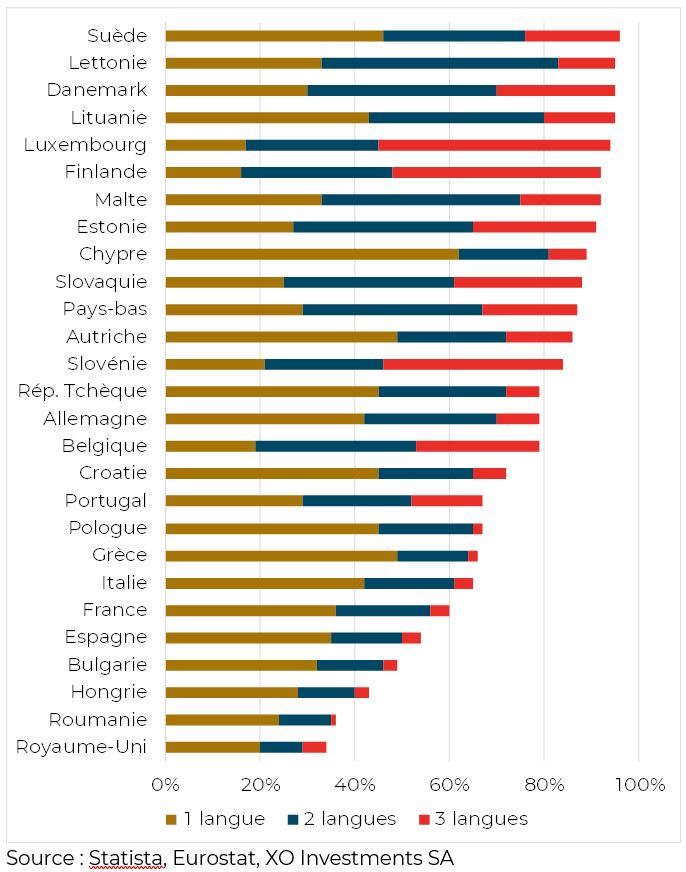
59% of the European population speaks a second language, a figure that has been rising over the decades and is even higher among younger people. 79% of 15-24 year-olds in Europe speak at least 2 languages.
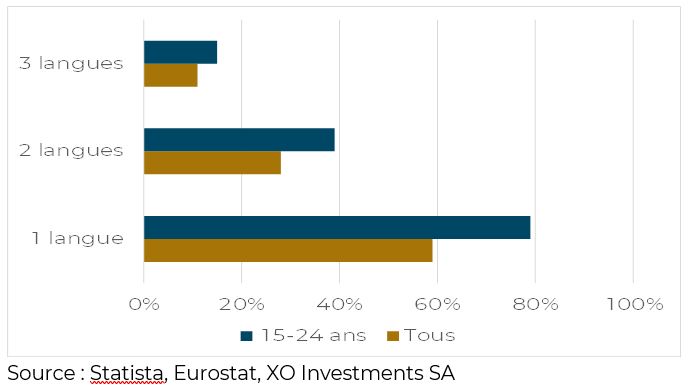
Although Chinese is the most widely spoken mother tongue in the world, its influence is less than that of English. The global influence of a language can be measured in a number of ways: native or non-native speakers, economic weight, cultural impact, international use, etc.
French, for example, is a de facto diplomatic language, with 29 countries using it as an official language, compared with 54 for English. English, on the other hand, is the language most used in electronic and scientific contexts.
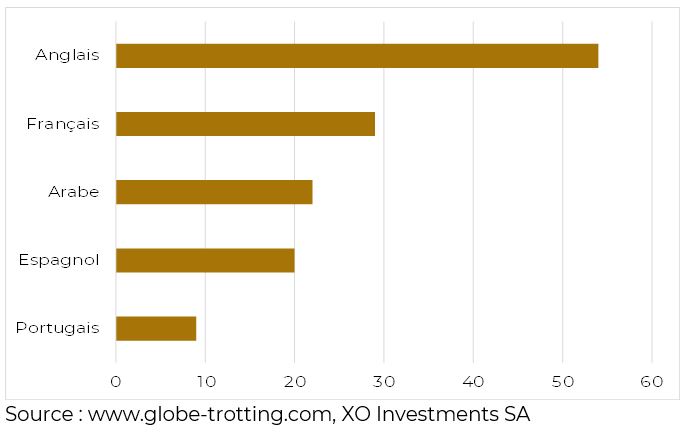
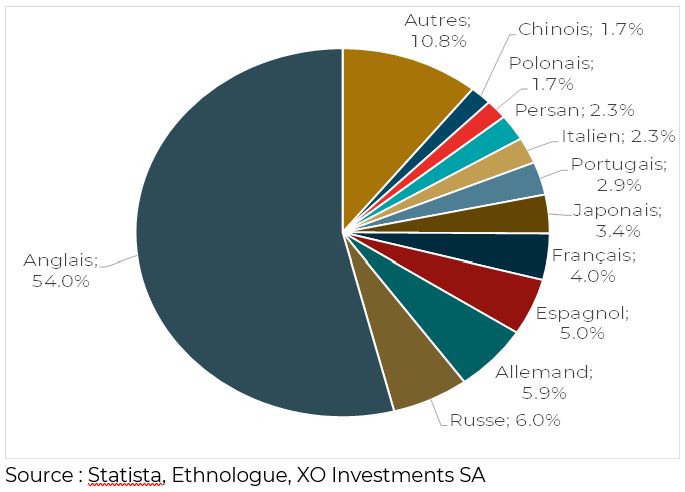
In 1997, linguist George Weber proposed a rating system to establish the 10 most influential languages in the world. He used 6 criteria:
• Mother tongue (max. 4 points) ;
• Second language (6) ;
• Economic power of countries using a language (8) ;
• Number of major areas of human activity in which language is important (8) ;
• Number of countries and their populations using a language (7) ;
• Socio-cultural prestige of a language (maximum 4 points + 1 point if the language is an official language of the United Nations);
Its ranking establishes English as the dominant language at present, followed by French and Spanish. Hindi, the 3rd most spoken language in the world, is ranked 10th, while German is in 7th place.
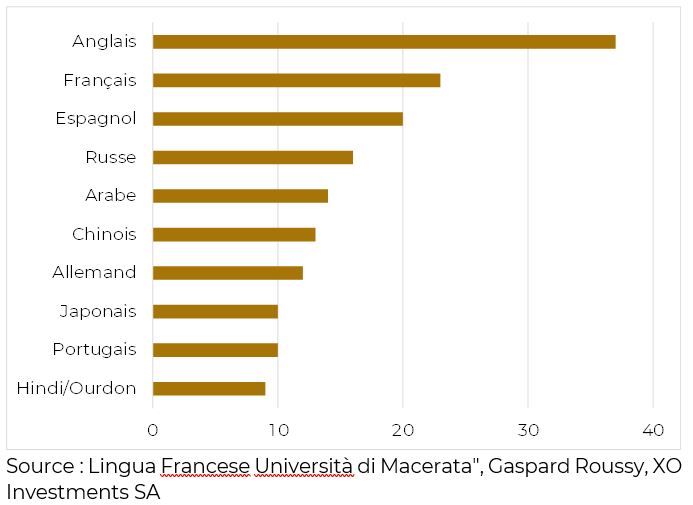
The world is now dominated by English, making a command of it essential for business and diplomacy. But geopolitical changes could make Chinese, Russian or Arabic the languages of the coming decades. This is what the peace talks in Saudi Arabia on the conflict in Ukraine could teach us, as influences and powers shift.
‘If you speak to a man in a language he understands, you are speaking to his head. If you speak to him in his language, you speak to his heart’.
Nelson Mandela